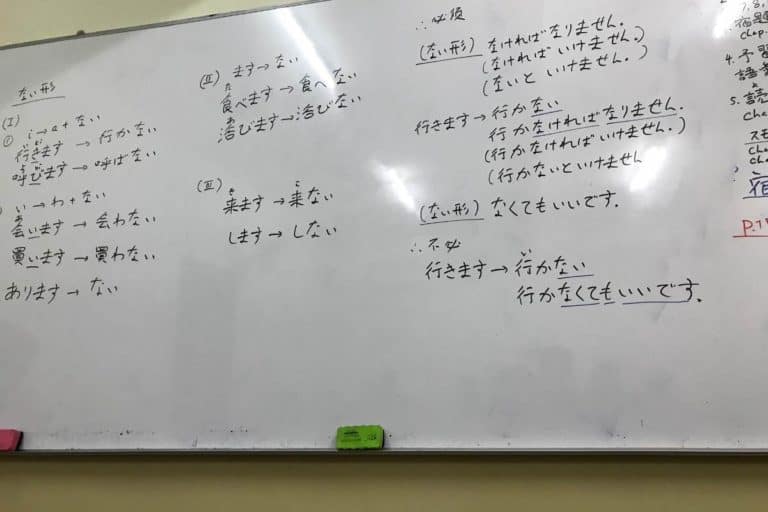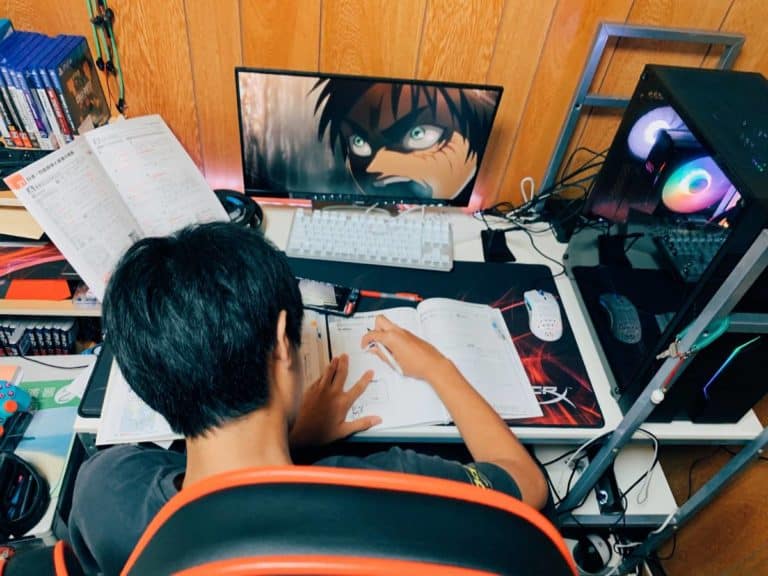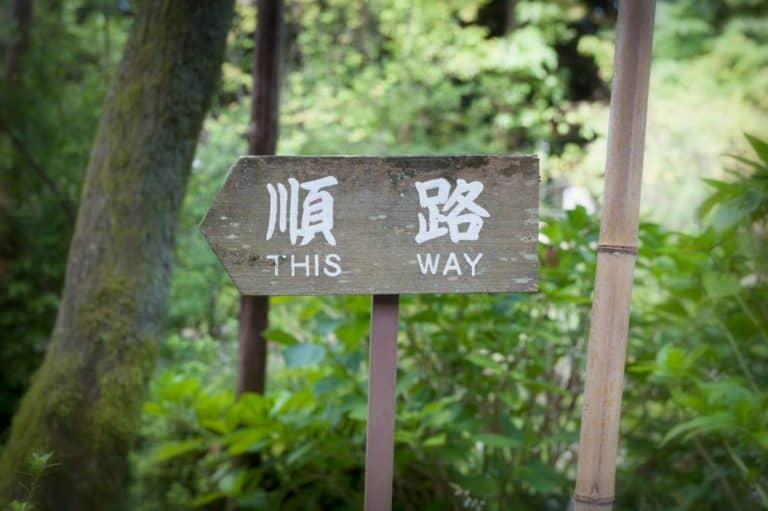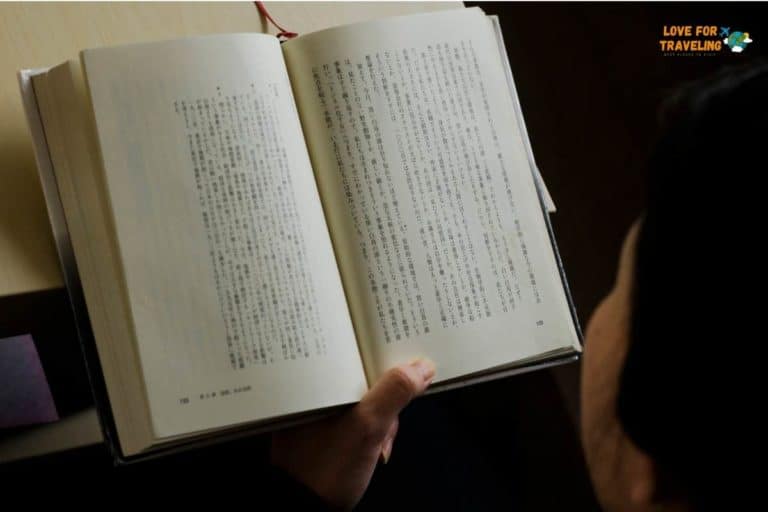Why do the Japanese Call Each Other by Their Last Names?
Japanese culture is quite different from American culture; one of the most notable differences is that Japanese people call each other by their last name only, whereas Americans often use first names or nicknames.
There are several reasons for this may be, but it’s essential to know these reasons to respect their culture when communicating with them.
In this blog post, we will discuss five cultural aspects of Japanese society that help explain why they call each other by their last name and how you can follow suit!
In Japanese culture, people traditionally use last names with strangers until they are very close. This is because hierarchy and seniority in Japan are highly valued aspects of their society. Depending on your relationship with them, replacing their surname with a first name may be appropriate if you know the person better.
Why do they say the last name first in Japan?
For Japanese people to communicate with someone they don’t know very well, they often use last names to act to build respect and formality.
Japanese people will also, more often than not, use last names when referring to themselves, for example, in an email signature.
So if you are communicating with someone from Japan, be sure that they know your first name, but refer to them by their last name until they permit you to use their first name.
Once one knows the person well enough to refer to them by their first name, it is acceptable.
When did the Japanese start using family names?
It is a relatively modern concept for the Japanese, who did not have family names until 1868.
They were first required to have them as part of creating national identification cards during pre-war modernization efforts.
In the past, only Samurai would have their family names.
When do you call someone by their first name in Japan?
All others should be called by their last name outside the family circle.
Calling someone by their first name would seem odd to most Japanese people. It is considered impolite in many situations – unless they are young or where both individuals are relatively equal (e.g., coworkers).
In Japanese culture, you should refer to yourself by your last name when meeting new people.
However, if they introduce themselves first and then give their first name, it is acceptable for other members in that group.
The way we speak to people is a reflection of our respect for them.
In Japan, it’s considered rude not to use honorifics when conversing with somebody; the Japanese consider this an insult and will likely feel disrespected by your lack of manners.
Manners are becoming increasingly critical in today’s world because so many cultures interact daily- they all have different languages, customs, religions, etc.
How do the Japanese show their politeness?
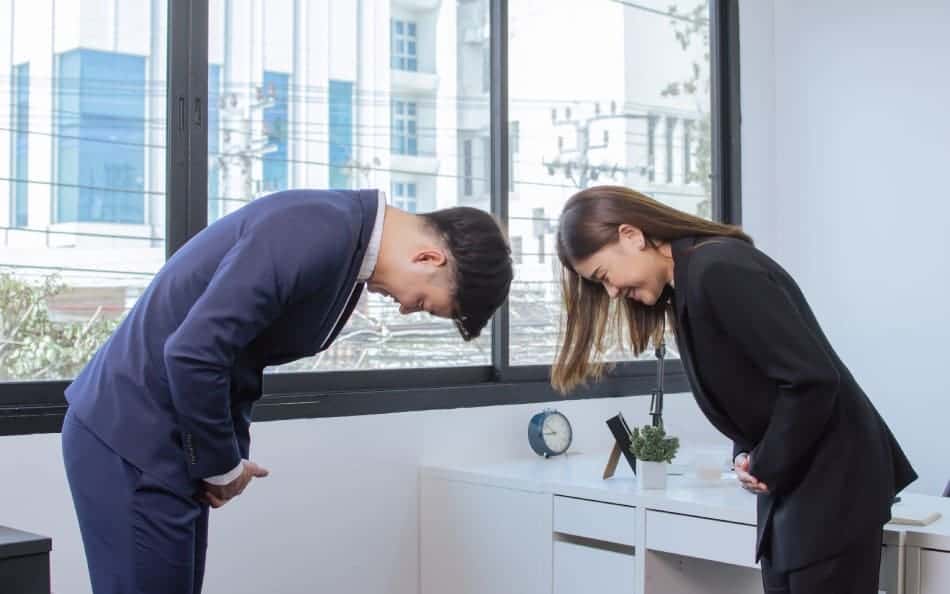
Bowing is a culturally significant gesture in Japan that conveys many different meanings.
Men typically keep their hands by the side of their bodies.
At the same time, women place theirs on top of one another with fingers interlaced and palms facing downward to show humility, apology, and greeting.
The bow changes depending on who you are bowing to – for example, if it’s an older person, they will lower themselves more deeply than when bending someone younger because respect should always be shown where deserved!
Depending on how long and deep people go into them, bows can convey gratitude or apology.
Generally speaking, adults never have to do anything other than slightly bending over from the waist at most 2-3 inches (5 cm); however, children may have to bend down on their knees.
Japanese people use many hand gestures and facial expressions when they speak, so eye contact is essential!
How vital are honorifics in Japan?
Japanese culture considers it extremely rude to address someone by their name.
This act (“yobisute”) is equivalent to addressing an English speaker only by surname.
San is a universal term to address coworkers who do not have a title.
If you are a foreigner walking around Japan, people might address you as “gaijin-san,” which means “foreigner.
They can also use Italianjin-San if you are Italian like me and Americanjin-San for Americans.
Depending on the circumstances, you might address your husband or wife by name.
For example, if your spouse is in a professional setting and meeting people for the first time, using their surname instead of personal pronouns would maintain professionalism and avoid confusion.
One way to respectfully refer to a person who is an elder or of higher rank than you, such as an educator, doctor, or lawyer, is by using “-sensei.”
How to greet someone in Japanese for the first time
The Japanese people greet each other with “hajimemashite” when they meet for the first time.
This can be translated to “Nice to meet you” in English, or it could mean that the person is happy and lucky to meet someone new, which is a standard greeting even if not always said aloud.
The Japanese people also greet each other by asking, “Ogenki desu ka?” which means “How are you?”
It is a common question to ask someone when they meet someone for the first time, and the answer is expected to be, “Genki dayo – I am well.
Basic Japanese Greeting Words
| Ohayou gozaimasu | good morning | おはようご ざいます |
| Konnichiwa | good afternoon | こんにちは |
| Sayounara | Bye-bye | さようなら |
| Ogenki desuka? | How are you? | お元気です か? |
| Gennki desu | I’m fine | 元気です |
| Arigatou gozaimasu | thank you | ありがと うございます |
| Gomennasai | I’m sorry | ごめんなさい |
| Sumimasen | Excuse me | すみません |
| Itadakimasu | before meal | いただきます |
| Gochisousamadeshita | after meal | ごちそう さまでした |

